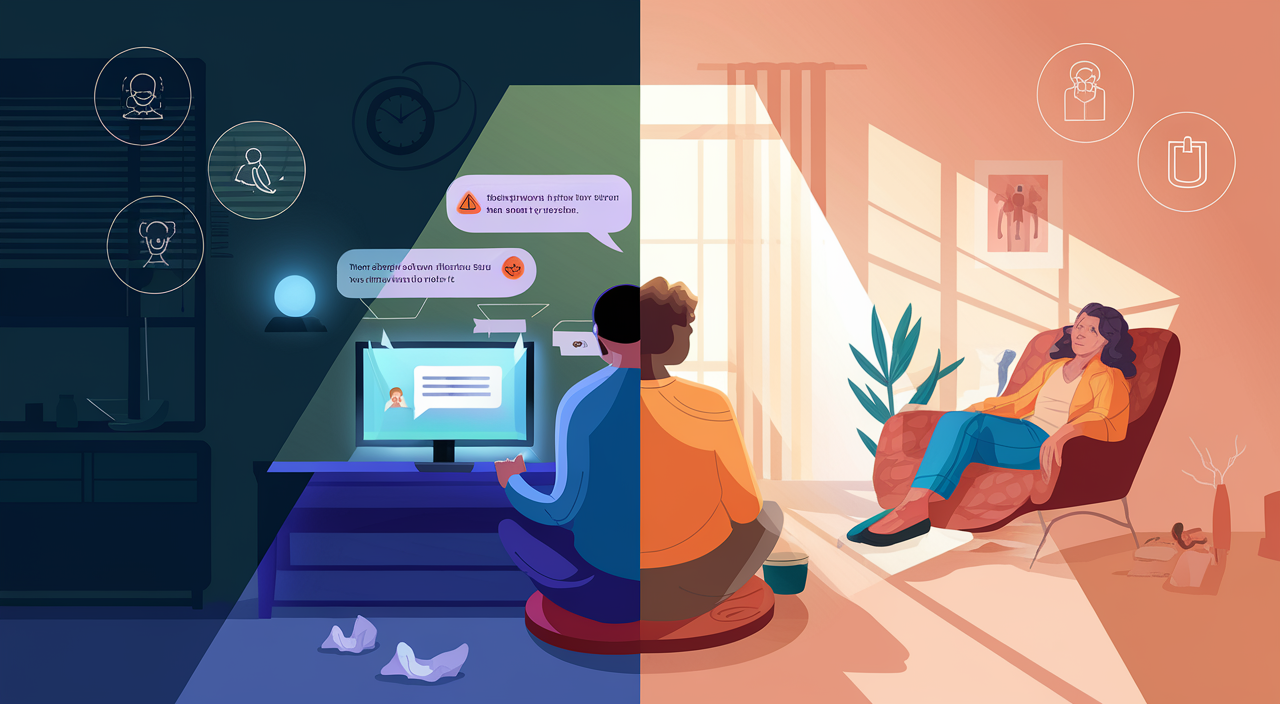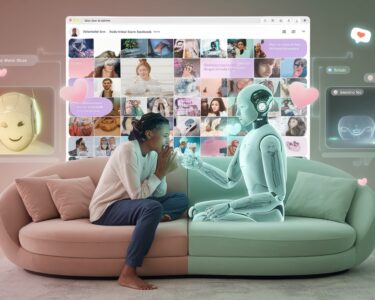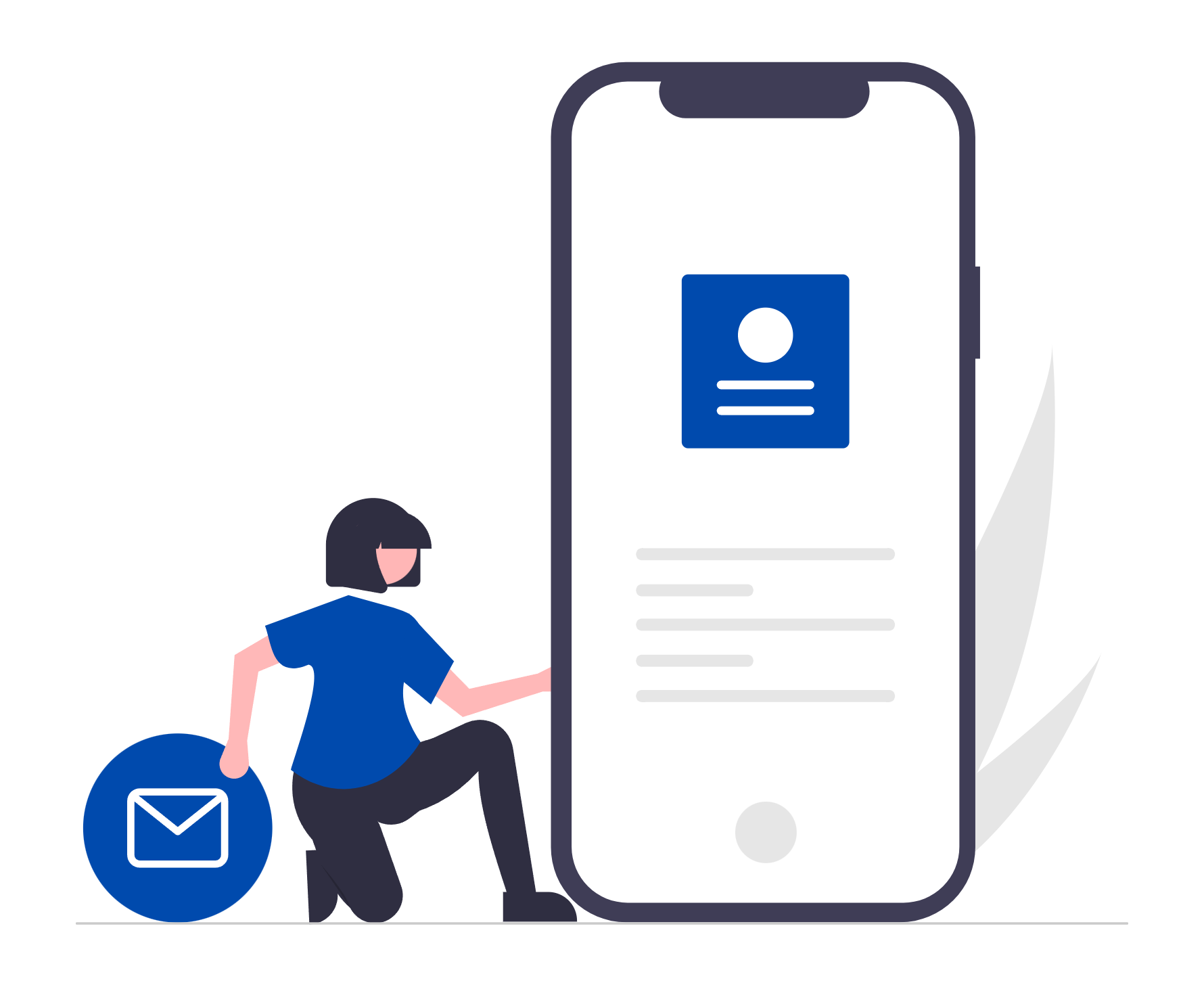The AI therapist roleplay trend has caught fire online, giving users mental health support alternatives beyond conventional therapy sessions, but raises major red flags about clinical effectiveness and user safety.
These AI companions deliver instant, non-judgmental conversations for free or minimal cost compared to traditional therapy’s $100-200 hourly fees, but fall short on genuine human connection and handling crisis situations properly.
Key Takeaways
- Users feel less satisfied when they learn they’re talking to AI instead of humans, showing the critical value of authenticity in mental health care.
- AI therapy platforms haven’t been clinically validated, can’t manage crises effectively, and lack professional supervision, which might result in harmful guidance.
- The affordability and constant 24/7 availability make AI mental health options attractive for people who face obstacles accessing traditional therapy.
- These platforms might postpone essential professional treatment by offering temporary emotional support that conceals deeper mental health concerns.
- AI’s future in mental health is shifting toward clinically-tested tools that complement rather than replace human therapists, with growing emphasis on ethical standards and regulatory structures.
Dangerous Implications of the AI Therapist Roleplay Trend
The False Promise of AI Mental Health Support
The AI therapist roleplay trend has gained significant traction, but I need to highlight its serious risks. Many users turn to AI chatbots for emotional support, similar to how they might seek comfort in creative comfort food options, but these digital interactions can be deeply problematic.
The Koko experiment revealed troubling insights about AI-driven mental health support. When users discovered they were chatting with AI instead of humans, their satisfaction dropped significantly — even though the responses were identical. This highlights a fundamental flaw in the AI therapist roleplay trend: authenticity matters in mental health support.
Critical Safety and Privacy Concerns
I’ve identified several key dangers that make AI therapy roleplay particularly risky:
- Lack of Clinical Validation
- Absence of Crisis Management Capabilities
- Potential for Harmful Advice
- Missing Professional Oversight
- Inadequate Data Protection
Users often share deeply personal information with these AI systems, much like sharing their feelings through personalized creative expression, but without proper data security measures in place. The unregulated nature of these platforms means sensitive information might not receive adequate protection.
The AI therapist roleplay trend poses another serious risk: delayed professional treatment. Users might feel temporary relief from their interactions, similar to finding comfort in an aesthetically pleasing morning routine, but this can prevent them from seeking legitimate mental health care.
These AI systems lack the ability to identify and respond to crisis situations effectively. Unlike trained professionals, they can’t recognize subtle signs of serious mental health issues or provide appropriate emergency interventions. Instead of supporting mental health, they might actually contribute to emotional coping mechanisms that mask deeper problems.
The absence of clinical expertise in these AI systems means they can’t provide the nuanced, personalized care that mental health treatment requires. They might offer generic responses that sound helpful but could be inappropriate or even dangerous for specific situations.
Why People Are Turning to AI for Mental Health Support Despite the Risks
The Growing Appeal of the AI Therapist Roleplay Trend
The financial barriers to traditional therapy have pushed many individuals to explore alternative solutions, with the AI therapist roleplay trend emerging as a compelling option. Traditional therapy sessions often cost between $100-200 per hour, while AI mental health platforms provide support at minimal or no cost. I’ve noticed how this accessibility has transformed the mental health landscape, particularly for those who previously couldn’t afford professional help.
The immediacy of AI therapy platforms has become a major draw. Unlike maintaining wellness through traditional methods, these digital solutions offer round-the-clock support without appointment scheduling or waitlists. This constant availability proves especially valuable during late-night anxiety episodes or unexpected emotional crises.
Benefits and User Engagement Patterns
The AI therapist roleplay trend has gained significant traction through platforms like Character.ai and Replika, which have recorded millions of downloads. Users appreciate the judgment-free space these platforms provide, making it easier to discuss sensitive topics they might hesitate to share in person. It’s similar to how people find comfort in creating personal comfort foods during challenging times.
Here are the key factors driving user engagement with AI therapy platforms:
- Emotional unburdening without fear of judgment
- Practice ground for difficult real-world conversations
- Flexible session timing that fits any schedule
- Geographic independence for users in remote areas
- Complete privacy and anonymity
- Zero waiting periods for support
The convenience of AI mental health tools mirrors the ease of preparing a comforting morning routine, providing users with instant emotional support. Many individuals use these platforms as a supplementary tool alongside traditional therapy, while others rely on them as their primary outlet for emotional expression and support.
These digital companions have become particularly valuable for those who find it challenging to open up in traditional therapy settings. Like creating a personalized self-care routine, users can customize their AI therapy experience to match their comfort level and specific needs.
The Future of AI Mental Health Tools: Moving Beyond Roleplay
Evolution Beyond the AI Therapist Roleplay Trend
I’ve noticed a significant shift in how AI mental health tools are being developed. While the AI therapist roleplay trend gained initial traction on social media, the focus is now on creating clinically-validated solutions that work alongside human professionals. These tools aren’t meant to replace therapists – they’re designed to enhance the therapeutic journey between sessions, similar to how healthy self-care routines support mental wellness.
The digital mental health market shows promising growth, with new tools emerging to help with therapy homework, mood tracking, and daily mental wellness activities. Think of it as creating a personalized mental health routine supported by technology.
Safety and Standards in AI Mental Health Support
The AI therapist roleplay trend has sparked important conversations about safety and effectiveness. Here are the key developments shaping the future of AI mental health tools:
- Implementation of strict ethical guidelines for AI mental health applications
- Development of regulatory frameworks to protect user privacy and safety
- Integration of clear pathways to human therapeutic support
- Creation of transparency protocols about AI capabilities and limitations
I’ve observed that successful AI mental health platforms, like those offering structured emotional support resources, are incorporating these safety measures. They’re also making it crystal clear that they’re supplements to, not substitutes for, professional care.
The future of AI in mental health extends far beyond the current AI therapist roleplay trend. These tools could revolutionize mental health screening and provide valuable support between therapy sessions. I’m particularly excited about their potential to make preliminary mental health support more accessible, especially in areas with limited resources.
By incorporating features like personalized wellness tracking, these platforms can help users maintain their mental health journey while ensuring they have access to human care when needed. The key lies in striking the right balance between technological innovation and human connection.
As more people grapple with stress and anxiety, some are turning to conversational bots for emotional support, fueling a growing movement described in this NPR article on tech-driven therapy.
Sources:
Education Week – “Teens Are Using AI Chatbots as Therapists. Should They?”
WIRED – “AI Therapy Chatbots Are Here. Should You Trust Them?”
Frontiers in Psychology – “Artificial Intelligence in Mental Health”
TechCrunch – “What is Character.AI?”
BBC – “The Dangers of AI Chatbots”
JMIR Mental Health – “AI Chatbots for Mental Health Support”





